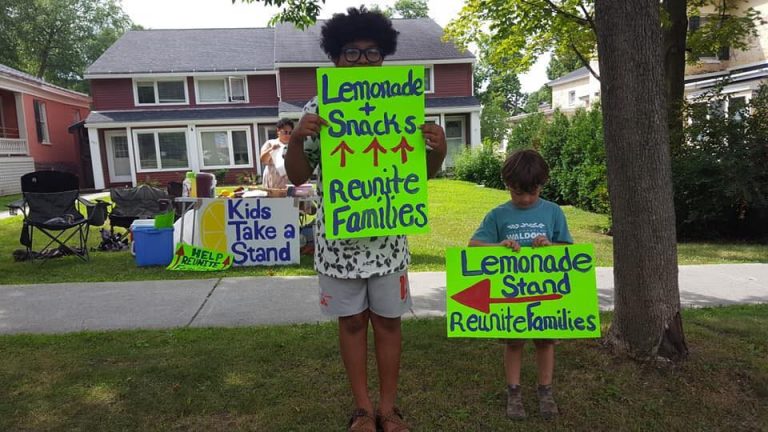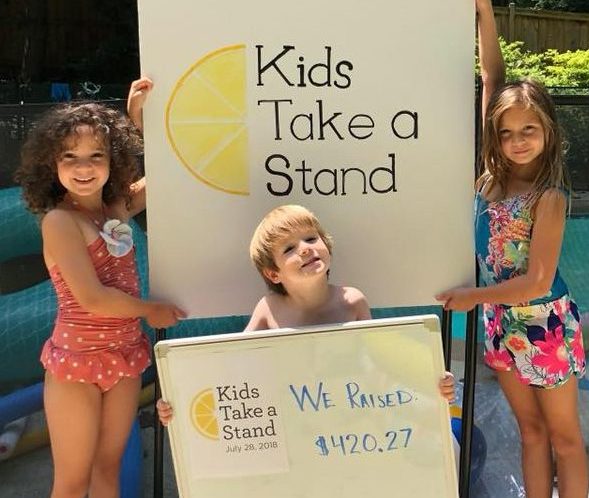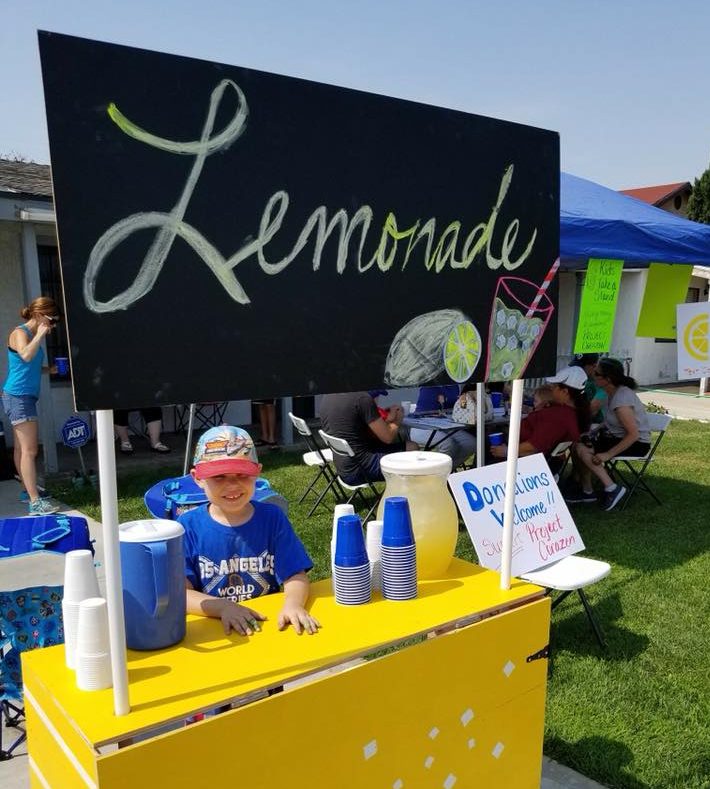
In response to President Trump’s immigration policy that has separated thousands of children from their parents as families make their way to the U.S. to seek asylum, kids nationwide are taking a stand by hosting lemonade stands to raise awareness and money for the migrant children.
![]() By: Heather Newgen | Twitter: @hnvoluntourist
By: Heather Newgen | Twitter: @hnvoluntourist
As the Trump administration continues to take children away from their parents as they enter the U.S. and prepares to deport undocumented immigrants without due process, Charlotte Latta, 8, of Kenmore, WA has a message to share.
“Kids are like eggs and parents are the birds and kids need their parents to survive,” she told The Voluntourist.
She added, “When I saw pictures of the kids in detention I felt sad and angry. The government is supposed to help kids, not hurt them. I’m having a lemonade stand because I want to help the kids…Kids are the future and the future is kids!”
Latta, like many others, are outraged by the inhumane methods of Trump’s crack down on immigration and are doing something about it.
The Lawyer Moms Foundation (LMF), a 501(c)(3) entity that conducts charitable and educational activities for issues affecting historically and currently marginalized children and families in the United States, announced its second annual Kids Take a Stand event. On July 27 and 28, kids and families nationwide will host lemonade stands to drive awareness about the continued separation of thousands of migrant families and raise funds to support migrant families separated at the border.

All proceeds from the lemonade stands will benefit Kids in Need of Defense (KIND) — whose staff and pro bono attorney partners at law firms, corporations, and law schools nationwide represent unaccompanied immigrant and refugee children in their deportation proceedings to ensure that no child stands in court alone — and Rio Grande Valley Rapid Response, a humanitarian effort to coordinate relief for the families and children who find themselves without food, shelter, or basic hygienic supplies.

“Kids and families alike have been horrified by the treatment of migrants in U.S. custody,” said Jasmine Blackmeir, Board of Directors, Lawyer Moms Foundation. “Since April 2018, thousands of children have been separated from their parents at the U.S. border — often in detention centers with abhorrent conditions, in violation of the standards outlined in the Flores Settlement — as a result of the Department of Justice’s “zero tolerance” policy. We want to give everyone, from young children to grandparents and everyone in between, the chance to make a difference.”
Last year, the inaugural Kids Take a Stand event raised over $40,000 through in-person and online donations nationwide. The proceeds were donated to Project Corazon.
“The nearly 20,000 moms who support the Lawyer Moms Foundation — and more importantly, American families — will not give up until every separated migrant child is reunited with their family,” said Jasmine Blackmeir, Board of Directors, Lawyer Moms Foundation. “We hope that Kids Take a Stand not only raises money for two organizations doing incredible work in support of migrant families but that it gives parents a way to discuss the family separation issue and ways to take action with their children, in an age-appropriate way.”
To find a lemonade stand near you click here.
To learn how to host your own lemonade stand click here.
About Lawyer Moms Foundation
Lawyer Moms Foundation (LMF) is a 501(c)(3) organization focused on conducting charitable and educational activities for issues affecting historically and currently marginalized children and families in the United States. LMF outreach and fundraising activities focus specifically on the intersection of U.S. law and disadvantaged families, such as immigration, clean water, and mass incarceration. LMF seeks to educate individuals and groups on these issues and how to address them through preserving and defending the necessary structural underpinnings of representative democracy in the U.S.—e.g., through increasing the number of registered voters, explaining the process and results of constituent advocacy, and exposing individuals and families to more people with stories and experiences different from their own.
